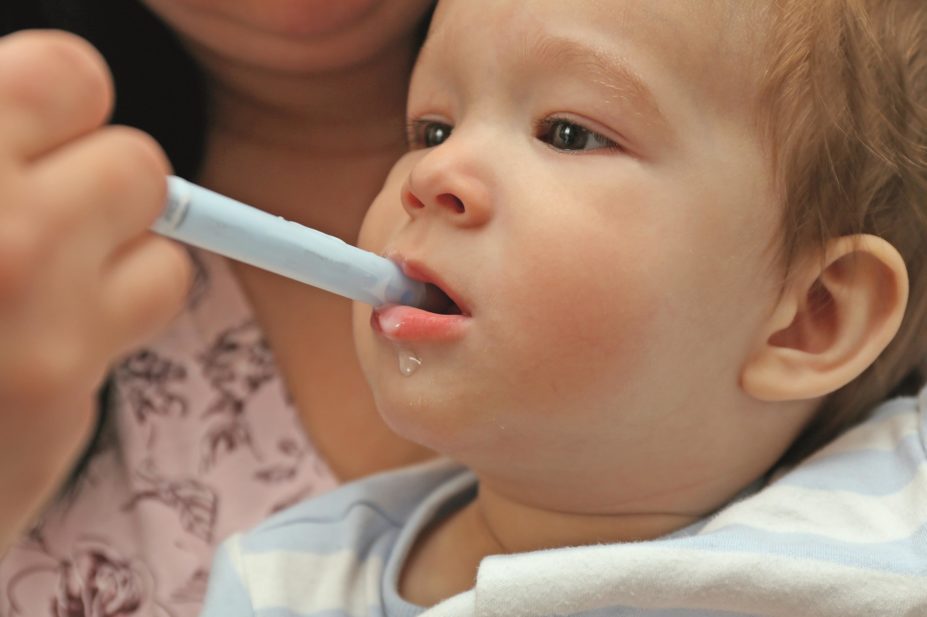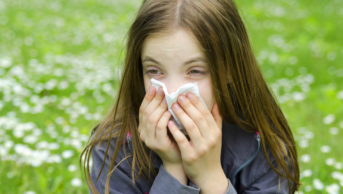
Shutterstock.com
The use of antibiotics during the first two years of life is associated with an increased risk of developing hay fever and eczema, results from a systematic review show.
Researchers found that the odds of being diagnosed with hay fever later in life were increased by up to 56%, and for eczema by up to 41%, with early antibiotic exposure. They also found that associations were stronger still when patients received two courses of antibiotics rather than one.
The authors used data from 22 observational studies involving 394,517 people considering the risk of eczema and 22 observational studies involving 256,609 people considering the risk of hay fever.
Fariba Ahmadizar from Utrecht University in the Netherlands, who led the research, says that previous studies have suggested a similar association between early life exposure to antibiotics with a risk of developing allergies, but results were “inconsistent”.
“[Therefore], in this study we aimed to systematically review and quantify the relationship between early life exposure to antibiotics and the risk of eczema (dermatitis) or hay fever (allergic rhinitis) using a large sample size,” she explains.
The findings, which were presented at the European Respiratory Society Congress[1]
in London held on 3–7 September 2016, show that the risk of hay fever increased by 18% in the analysis of cohort studies, by 56% in cross-sectional studies, and by 14% in case-control studies. The respective figures for hay fever were 24%, 41% and 15%.
Ahmadizar says that the associations are thought to be a consequence of the immunomodulatory effects of antibiotics and their influence on the gut microbiome.
“Gut microbiota are thought to play an important role in the development of the immune system early in life,” she says. “Reduced gut microbial diversity by exposure to antibiotics in early infancy leads to imbalanced immune responses, and have been related to an increased risk of allergies and even other immune related disorders.”
But since several factors can influence the gut microbiome and imbalanced immune response, she adds that further research is needed to better understand the link between antibiotics and the risk of allergies.
Similar research has also been published in Allergy, Asthma & Clinical Immunology
[2]
(online, 17 August 2016), showing a link between antibiotic use and the development of food allergies in children.
The case-control study, involving 1,504 children with food allergies and 5,995 children without, found an association between antibiotic prescription in the first year of life and a 21% increased risk of food allergies by the age of three years old. The study found this association was stronger when patients received more than one course of antibiotics.
Amena Warner, head of clinical services at charity Allergy UK, says that it is important to study the root causes of allergies and the gut microbiome has become a well researched area. “It seems perfect sense not to kill off this healthy environment unless absolutely necessary.
“As some antibiotics will eradicate both friendly and unfriendly bacteria but will not target viral infections, their use should be limited to those who really need them,” she says. “If this approach in turn lessens the probability of developing allergy, then it will be very welcome news to try to reduce the risk.”
References
[1] Ahmadizar F. Early life antibiotic exposure is associated with an increased risk of allergy. Presented at: European Respiratory Society International Congress; 3–7 September 2016; London, UK.
[2] Love BL, Mann JR, Hardin JW et al. Antibiotic prescription and food allergy in young children. Allergy Asthma & Immunology 2016;12:41. doi: 10.1186/s13223-016-0148-7


